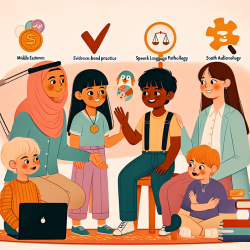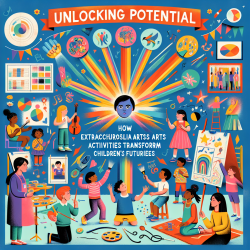In the realm of speech-language pathology, the social development of children with neurodevelopmental disorders such as ADHD and autism is a critical focus. The recent research article titled Friendship interventions for children with neurodevelopmental needs: A systematic review and meta-analysis provides a comprehensive evaluation of various intervention strategies aimed at improving friendships among these children. This blog will delve into the key findings and practical applications of this research to enhance the skills of practitioners working with children in educational settings.
Understanding the Importance of Friendships
Friendships are essential for the social and emotional development of children. They provide a foundation for empathy, perspective-taking, and prosocial behaviors. For children with neurodevelopmental disorders, forming and maintaining friendships can be particularly challenging due to difficulties in social functioning. These challenges often stem from differences in social, emotional, and cognitive skills.
Key Findings from the Research
The systematic review and meta-analysis included 12 studies involving 15 interventions, with a total of 683 children with neurodevelopmental disorders and 190 typically developing children. The research highlighted several critical points:
- Intervention Effectiveness: The overall intervention effects for friendship across all interventions were small to moderate. However, individual interventions showed varying degrees of success.
- Peer Involvement: Interventions that actively involved peers were more effective in improving friendships. This suggests that peer-mediated strategies can play a crucial role in fostering social connections.
- Educator Involvement: Interventions delivered by educators showed significant positive effects. This highlights the importance of integrating social skills training within the school environment.
- Child Self-Report Measures: Including child self-report measures of friendship provided valuable insights into the effectiveness of interventions.
Practical Applications for Practitioners
Based on the findings, practitioners can implement the following strategies to improve friendship outcomes for children with neurodevelopmental disorders:
- Incorporate Peer-Mediated Interventions: Engage typically developing peers in interventions to model and reinforce positive social behaviors. This can be done through structured peer support groups or peer network interventions.
- Utilize Educator-Led Programs: Train educators to deliver social skills training within the classroom. Programs like MOSAIC and Remaking Recess have shown promising results when implemented by educators.
- Focus on Child Self-Reports: Include child self-report measures in the evaluation of intervention effectiveness. This provides a more comprehensive understanding of the child’s perspective on their friendships.
- Long-Term Follow-Up: Conduct follow-up assessments to evaluate the long-term impact of interventions on friendship quality and stability.
Encouraging Further Research
While the current research provides valuable insights, there is a need for further studies to evaluate the effectiveness of friendship interventions for children with developmental language disorder (DLD), intellectual disability (ID), and social (pragmatic) communication disorder (SPCD). Future research should also focus on identifying specific skills that are foundational to developing supportive, intimate, and reciprocal friendships.
To read the original research paper, please follow this link: Friendship interventions for children with neurodevelopmental needs: A systematic review and meta-analysis.










